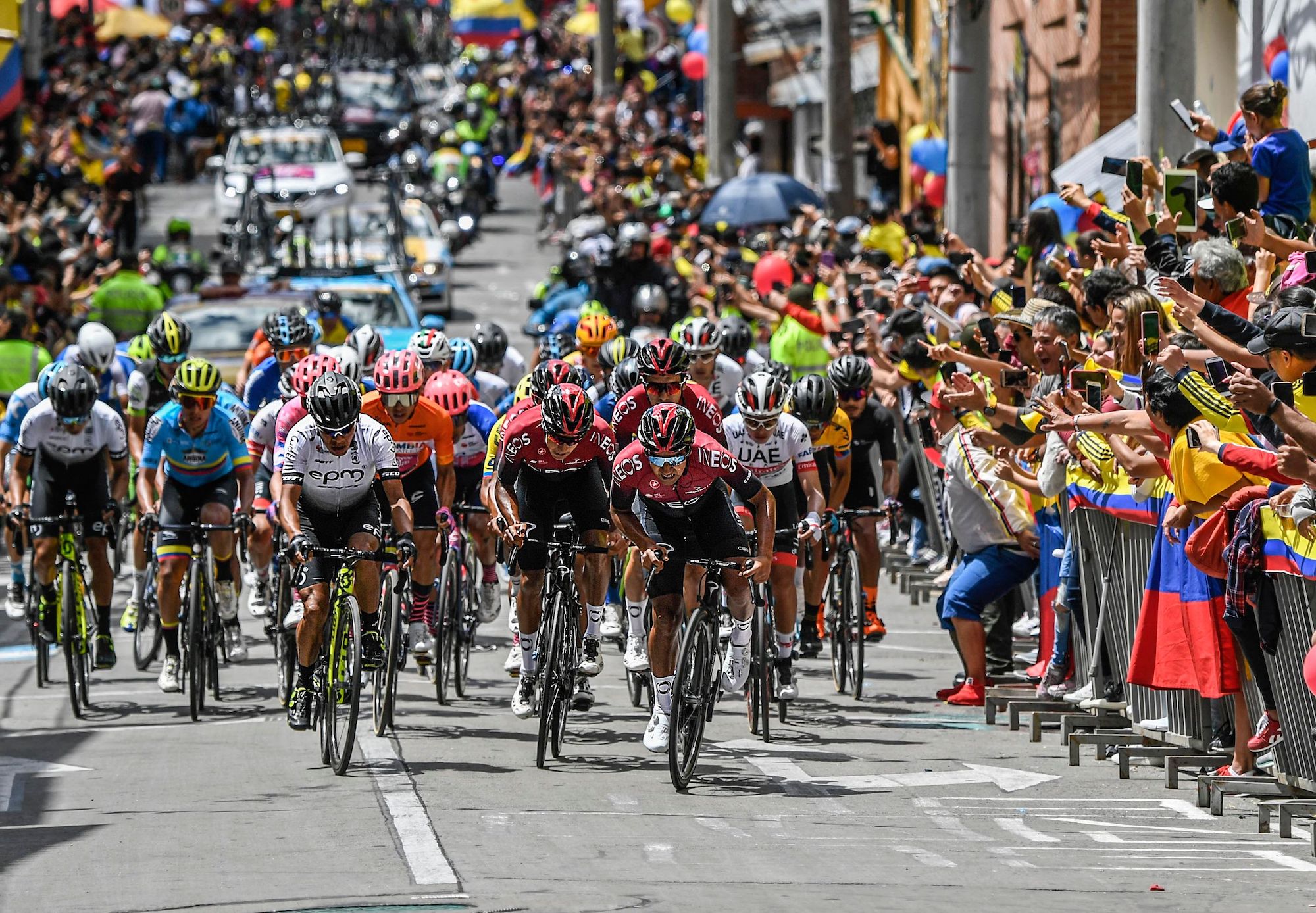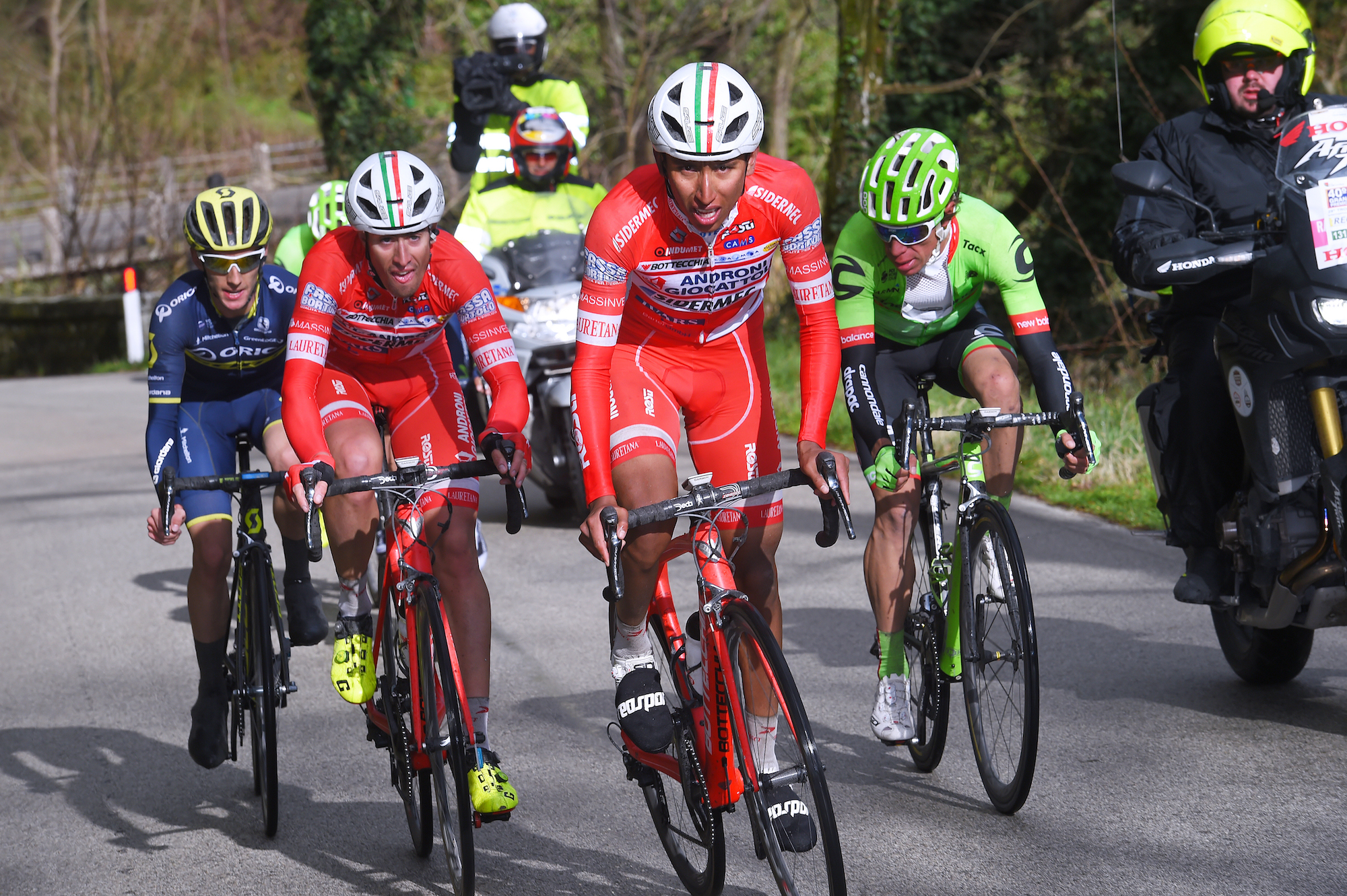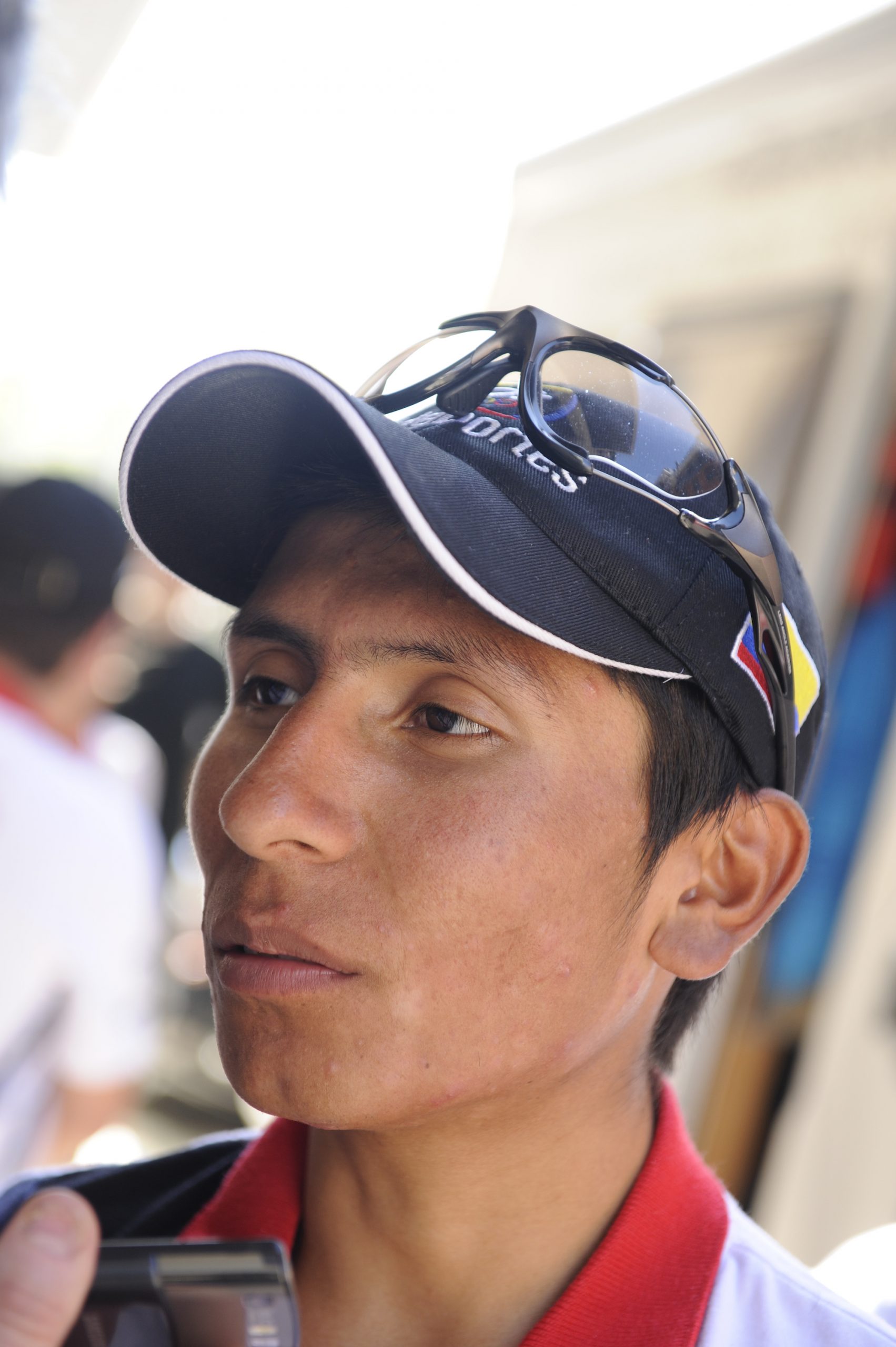'This boy was being held at gunpoint by paramilitaries': Inside the rise of Colombia's golden generation
Matt Rendell's latest book goes deep into the tough childhoods behind Colombia's cycling stars

(Getty)
"I knew the country had a population of over 40 million and I thought 'well if it's like it's depicted, everyone would have left'.
"What I found were people who are incredibly welcoming and grateful that you've seen through the sort of horror stories that you're drip-fed and, not that you've realised they're not true, but that they can't be representative because human beings don't live like that."
That was Matt Rendell's first trip to Colombia in 1998, where he pretended to be a cycling journalist to cadge interviews with a Colombian cycling commentator and subsequently extract the phone number of Chepe González, who he then stayed with for a week.
Twenty-two years later, the 'Mr Colombia' of the cycling press says it has been "amazing to watch and a lovely privilege" as the South American nation has flourished, becoming not only a well-trodden path for backpackers who can take stories of what the country is really like back home but also the development of a golden generation of cyclists, culminating in Egan Bernal delivering the country's first-ever Tour de France victory last year.
It's too early to write biographies of these riders, according to Rendell, who instead has opted to focus on 15 Colombian pros and chart their story from the beginning until now in his new book 'Colombia Es Pasión!'
"You would think in biographies that when a rider reaches the WorldTour that's when their life starts but I think of it the other way round," Rendell tells Cycling Weekly. "They eat, they sleep, they train, they all kind of become the same because their lives are so demanding.
The latest race content, interviews, features, reviews and expert buying guides, direct to your inbox!
"The most interesting part of their lives is their childhoods. And so it's really about those years and where they fit into the mosaic of Colombian development."
The early-season showcase for the incredible rise of Colombian cycling is the Tour Colombia, which attracts an abundance of WorldTour talent and captures the attention of fans all over the world with the colourful roadsides created by the nation's passionate fans. And really, it's just the start of what could be, Rendell thinks.

"I think it's a race that suffers from an astonishing lack of ambition because as you know, it costs money to have television coverage, you have to pay a lot of money to Eurosport to show your event, and the thing is that most cycling events exist in order to show helicopter shots of beautiful beaches and landscapes to the potential tourist market," Rendell says.
"Colombia is at a different stage of its development. The cycling is really a present for the people of Colombia. There isn't a kind of business plan, they haven't quite got around to thinking of it as a way of marketing Colombia to the outside work. It's more a question of nation-building. I think it's a shame. I think it's a missed opportunity."
What a great conversation to be having about the potential of Colombia's future, when times haven't always been as filled with promise. The book covers the darker moments, including the harrowing story of the murder of Rigoberto Urán's father.
"I went along with this sort of inflated desire to solve who and why [Urán's father was murdered] and it slowly dawned on me that it's not my death to investigate," Rendell explains.
"One of the things I found out, that struck me, was that there was a group of boys who went out on a ride and they were stopped by the paramilitaries and Rigoberto's father was with them. There were two adults with them and the group they encountered were rustling cattle and they got the two adults to help them and then they put a bullet in Rigoberto's father's
neck.
"Rigoberto wasn't there, he was at school that morning, but among the boys who were was one cyclist whose father had been murdered in front of his eyes by a paramilitary group who had burst into the house and gunned him down in front of the family. This boy was then being held at gunpoint by these paramilitaries, it's beyond anything you can imagine. So that's probably one of the most shocking things."

Conversation then turns to the man of the moment in cycling, Egan Bernal. Asking Rendell what he knows about the 23-year-old Ineos rider is like a better Wikipedia just for cyclist's origin stories, with an infectious enthusiasm for their subject that the army of online encyclopedia devotees could only hope to capture.
"In Colombia for poor families it's very, very difficult to make savings, to put money aside, and his parents are very smart and were both in peasant farming families. They both moved to the town and they did make some progress and got social housing, and then cycling was all about having something to keep Egan off the streets.
"The chapter in the book about him is called 'The boy who grew up too fast' and his mother told me this amazing story where they were sat at the kitchen table when Egan was five and she said: 'Egan, I don't know what we're going to do,' and Egan would say, 'look, we're gonna get through this we're gonna be okay'. You know? When he was a five-year-old!"
Rendell then recounts how when Bernal was 10 or 11 years old and his parents were working in the cut flower industry, Colombia is the second-largest exporter behind the Netherlands he adds, and the workers were allowed to buy bouquets cheaply so his mother would buy 10 or 12 and Egan would sell them door-to-door. They would sell them for the equivalent of 65p, making a 25p profit, which would be split between going to household costs and paying for Bernal's schoolbooks and photocopies.
"Bernal said to me: 'I don't know if it's because of that, but I've never had any problem negotiating contracts, hiring and firing agents and deciding who I need working around me,'" Rendell recalls.

Is there something specific about this hardship that ties all these Colombian riders together? This time Rendell delves back into a conversation he once had with Nairo Quintana.
"Nairo said to me once that kids who've had to lead the life they've had to lead, a lot of them don't make it and they fall by the wayside, or they start drinking or taking drugs. And all of these kids, whether it's Rigoberto, Egan, Nairo, Esteban Chaves, Miguel Ángel López, they have in their heads, in their makeup, a kind of genius for coping, because they've had tough lives," Rendell says.
"Think of Rigoberto and the people who knew him, who observed him in the weeks and months after his father's murder. They said he took over his father's rounds selling lottery tickets and his cycling training then became very structured while he also went to school. He had those three things to do, including being the breadwinner for the family.
"All the other boys were at the river swimming and Rigoberto would say 'no I have this to do I have that to do,' and they channeled this genius for coping into cycling. They trained in a very, very structured and rigorous and disciplined way. And in a sense, it was a coping mechanism. I think that's what sets them apart."
Matt Rendell's Colombia Es Pasion!: The Generation of Racing Cyclists Who Changed Their Nation and the Tour de France is now available from the places you'd usually buy books
Jonny was Cycling Weekly's Weekend Editor until 2022.
I like writing offbeat features and eating too much bread when working out on the road at bike races.
Before joining Cycling Weekly I worked at The Tab and I've also written for Vice, Time Out, and worked freelance for The Telegraph (I know, but I needed the money at the time so let me live).
I also worked for ITV Cycling between 2011-2018 on their Tour de France and Vuelta a España coverage. Sometimes I'd be helping the producers make the programme and other times I'd be getting the lunches. Just in case you were wondering - Phil Liggett and Paul Sherwen had the same ham sandwich every day, it was great.